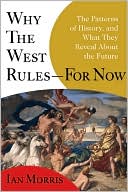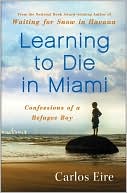Other Face of America: Chronicles of the Immigrants Shaping Our Future
Jorge Ramos, best known for his work on Noticiero Univision, paints a fascinating picture of immigrant life today. He tells the story of dozens of men and women who risked everything—including their families—in order to pursue a better, freer future in the United States.\ Through these gripping tales, Ramos helps to establish the notion that Latinos have ultimately created a country within a country, and iwth the Latino population skyrocketing, they are the heart and future of America. Ramos...
Search in google:
Jorge Ramos, best known for his work on Noticiero Univision, paints a fascinating picture of immigrant life today. He tells the story of dozens of men and women who risked everything—including their families—in order to pursue a better, freer future in the United States.Through these gripping tales, Ramos helps to establish the notion that Latinos have ultimately created a country within a country, and iwth the Latino population skyrocketing, they are the heart and future of America. Ramos gives each a voice and narrates why they first immigrated (war, poverty, exile, ect.), what their dreams are, how they face and deal with racism, and what they believe their future will ultimately hold. Publishers Weekly "I have encountered a lot of discrimination in my life... words like wetback, or ugly words like tar baby." The speaker is not an undocumented Mexican immigrant or a Salvadoran refugee, but George P. Bush, the son of Florida Governor Jeb and his Mexican wife, Columba. Ramos, columnist and Emmy award-winning anchor on Noticiero Univision, makes the case that if a Bush can face racial and ethnic discrimination, imagine what confronts the average Latino. It's a compelling point, as most of the people Ramos writes about in this lively, smart and sometimes cursory tour through U.S. Hispanic lives and cultures have nowhere near the status or privilege of a Bush family scion. The 49 short and mid-length pieces of this collection cover a wide range: e.g., undocumented Chicano nannies in Aspen tending the children of wealthy white vacationers; the energetic battle by Puerto Ricans to stop the navy shelling of Vieques; the shooting death of Amadou Diallo by New York City police. Ramos makes quick, tart points in the shorter pieces, but his longer meditation on the Elian Gonzalez affair shows that he can write sustained, critical think pieces as well. More a journalistic collection than a full-length study, the book is entertaining, informative and well done, but breaks little new ground. (Feb.) Forecast: Look for some sales via Ramos's Noticiero Univision profile and 35-paper syndicated weekly column, but the lack of a solid news hook or personal interest story will prevent larger numbers. Copyright 2001 Cahners Business Information.
Chapter One\ The Border\ Tijuana, Baja, California. It was cold, very cold. I was walking toward the border like a zombie, as if a magnet were pulling me to the other side and I had no will to resist. I was here, but I didn't really want to be here. Others just like me were also approaching the border, slowly, gently, but firmly, their eyes fixed on the horizon of bushes and plains. That is where I had to go. Over there. Then, just before we got there, we stopped dead in our tracks. There it was in front of us, the fence, and on the other side, the United States. The fence was a mass of metal about three yards high and full of holes. They spent all that money for that? I thought. In the places where the wire fence wasn't broken, it would have been easy to dig a hole and crawl underneath. No problem. "This fence won't stop anyone," I said aloud. About three hundred yards in front of us, a few men dressed in green, who were standing next to a patrol car, were staring at us through some binoculars. They were so far away that it was like watching characters on a television screen. But they could surely see our fatigue, detect our red, fearful eyes, and read our determination to outwit them. The people next to me squatted, like when you want to go to the bathroom and there is none. They waited. The plan of each one there -- and there were hundreds -- was quite simple: wait for the immigration police to get tired and leave, or wait for the change of shift. After all, there was nowhere else to go and it was only ten o'clock at night. I sat down too. Now the only thing I wanted to know was how did they think they were going to cross theborder and where, when, who to stick with and who to lose. I felt the cold through my pants. My jacket was thick but was not keeping me warm. It was then that I remembered the words of my sister, Lourdes: I was cold inside." I was cold inside too. I drank some watered-down coffee, but it didn't help. Damn cold, damn cold, damn cold, I repeated over and over, as if hoping that the repetition would warm me. I began to shiver. Others were shivering too, but I don't know if it was because of the cold or because they were thinking about what they had left behind. Families had been reduced to black-and-white photographs in a wallet. There were the photos of the little boy who no longer cried and the wife who no longer kissed and the father who no longer smiled, right next to the card showing the image of the Virgin. They didn't really want to leave. Later on, though, they would remember why they were there -- the lack of work: "In Mexico no hay jale." In the meantime, all eyes continued to wait, watching for the man in green to blink, the jeep to move, a moment of carelessness. The bright lights from the U.S. side -- which reminded me of those in Azteca stadium in Mexico City -- fought against the moonless night. All of a sudden, jaws clenched, stomachs became flat as boards, and veins bulged from necks. I was uneasy and began to breathe quickly. The moment to cross had come. Change of shift. You could hear clearly the sound of the jeep starting, and soon the vroom of the engine disappeared. Everyone on our side began to move, as if choreographed; first bent over, and then, once standing, they took off running. I stopped. I touched my pants pocket, and at once I felt different. It was the lump from my Mexican passport and my green card. just in case. The others moved off until they were only shadows, and I stood there, thinking how screwed up life is.\ The night I approached the border, still on the Mexican side, there was a man selling plastic bags.\ "Plastic bags to cross the border?" I asked one of the boys there. "What for?"\ "So you don't get your pants wet, NERO," he replied. Then he added that when you are in Gringoland it's not a good idea if the migra realizes that you have just crossed the border. That could mean a ticket straight to jail.\ The sale of bags was not a great business, but it provided enough to live on. Likewise, on small charcoal grills and in buckets filled with ice, others were selling taquitos and drinks to remedy the hunger of those about to cross el bordo. That's what it was called there. It must be one of those words that found its way into the new Spanglish dictionary due to so much repetition.\ It's not difficult to find someone to talk to on the border. Hundreds of people, scattered along the border, looked toward the north as if they were waiting for a signal to cross. There is, however, a nervousness in the air, the tension of those who know that in a few minutes they are going to risk their necks, something akin to how soldiers must feel when they are about to initiate an attack.\ The conversations are about only one thing: When are you going to cross? Has the migra caught you before? Where is it the easiest? Are you going alone or with a coyote? Strangely, the most relaxed time is when they can see the border police on the other side, which means that at that moment no one can cross.\ "Why are you leaving Mexico?" I asked a young man who had several day's growth of hair on his face and wore a white shirt that had not been white for some time.\ "You can't live on the minimum..."\ The Other Face of America. Copyright © by Jorge Ramos. Reprinted by permission of HarperCollins Publishers, Inc. All rights reserved. Available now wherever books are sold.
AcknowledgmentsIntroductionFrom the South to the North: Stories of Mexican Immigrants1The Border32Amelia and San Guivi103Falsifying the Future194A Day without a Mexican235Aspen for the Undocumented276Matamoros, New York317The Raid358Nannies399The Reconquest of California4510The Indispensable4911From Chicago with Skepticism5312The Betrayal (or How the Votes of 10 Million Mexicans Were Stolen)5613Angel, "The Discriminated One"6014Heliodoro's Letters6415The Mexican Girl Who Wrote to President Clinton68We Come From Everywhere16Elian: His First 150 Days in the United States7317Cuba Entrenched in Miami10718Lazaro: A Dissident in Exile11119Central Americans: From Wars, Laws, and Hurricanes11520Vieques and What It Means to Be Puerto Rican12321Puerto Dominicans and New Dominicans12922The New Colombian Exodus13523The Muddy Shoes of Venezuela141Life in the United States24Nostalgia, Aromas, and Tacos14925The Call15126The Rediscovery of Hispanics15327California Is the Future16028Loretta and the Voters Revenge16429Accomplices of the Undocumented16830The Labyrinth17231The Metedolares17532What Immigrants Contribute to the United States179Racism33Julian Samora and the Dogs18534John Rocker-Face-to-Face with a Racist18735How to Kill an Immigrant and Get Away with It19336Video Justice196Spanglish37Long Live Spanglish!20138The Future of Spanish in the United States20639The Spanglish Professor210The American Dream40Why Marta Wants to Leave Mexico21741Soccer Children22042La Vida Loca22443Chef Cristino22844The American Dream-Mexican Style (or Maria Amparo's Santitos)230Our Future45Am I an Immigrant, Papa?23746Amnesty23947July 1, 2059246Epilogue: Where Are They Now?249
\ From Barnes & NobleHard-hitting journalist Jorge Ramos knows that the much-touted "rise of Latinos" in the United States has not always translated into political clout or fair treatment. In this collection of powerful essays, the author of No Borders describes the struggle of Hispanics to create normal lives for themselves and their children in their adopted country. Must-reading for citizens present and future.\ \ \ \ \ Publishers Weekly"I have encountered a lot of discrimination in my life... words like wetback, or ugly words like tar baby." The speaker is not an undocumented Mexican immigrant or a Salvadoran refugee, but George P. Bush, the son of Florida Governor Jeb and his Mexican wife, Columba. Ramos, columnist and Emmy award-winning anchor on Noticiero Univision, makes the case that if a Bush can face racial and ethnic discrimination, imagine what confronts the average Latino. It's a compelling point, as most of the people Ramos writes about in this lively, smart and sometimes cursory tour through U.S. Hispanic lives and cultures have nowhere near the status or privilege of a Bush family scion. The 49 short and mid-length pieces of this collection cover a wide range: e.g., undocumented Chicano nannies in Aspen tending the children of wealthy white vacationers; the energetic battle by Puerto Ricans to stop the navy shelling of Vieques; the shooting death of Amadou Diallo by New York City police. Ramos makes quick, tart points in the shorter pieces, but his longer meditation on the Elian Gonzalez affair shows that he can write sustained, critical think pieces as well. More a journalistic collection than a full-length study, the book is entertaining, informative and well done, but breaks little new ground. (Feb.) Forecast: Look for some sales via Ramos's Noticiero Univision profile and 35-paper syndicated weekly column, but the lack of a solid news hook or personal interest story will prevent larger numbers. Copyright 2001 Cahners Business Information.\ \ \ Library JournalRamos sends his message loud and clear: Hispanics are the emerging minority, and their contributions to American society both culturally and socially are already well established. More importantly, Hispanics are a powerful economic voice all that is left is for their political clout to catch up with their economic impact. With over seven million Mexicans born in Mexico living in the United States, these immigrants cannot be ignored. Crossing into America simply for opportunity, Mexicans fill many jobs most Americans would reject, yet discrimination is still widespread, and the nearly two and a half million illegal immigrants face even greater hardships. In brief vignettes, Ramos, a native Mexican and as a Univision anchorman one of America's most recognized Hispanics, delivers powerful images of immigrants attempting to provide for their family and improve their quality of life, and he destroys many of the stereotypes of Mexicans seeking only welfare benefits. Among the many villains, Ramos counts former California governor Pete Wilson, conservative Pat Robertson, and the migra, or Immigration and Naturalization Service. Initially published in Mexico as La Otra Cara de America, this significant book belongs in all libraries. Boyd Childress, Auburn Univ. Lib., AL Copyright 2001 Cahners Business Information.\ \ \ \ \ Kirkus ReviewsVoices and experiences from the great Hispanic emigration to the US, gathered and put into appropriate context by the levelheaded yet passionate journalist Ramos.\ \








